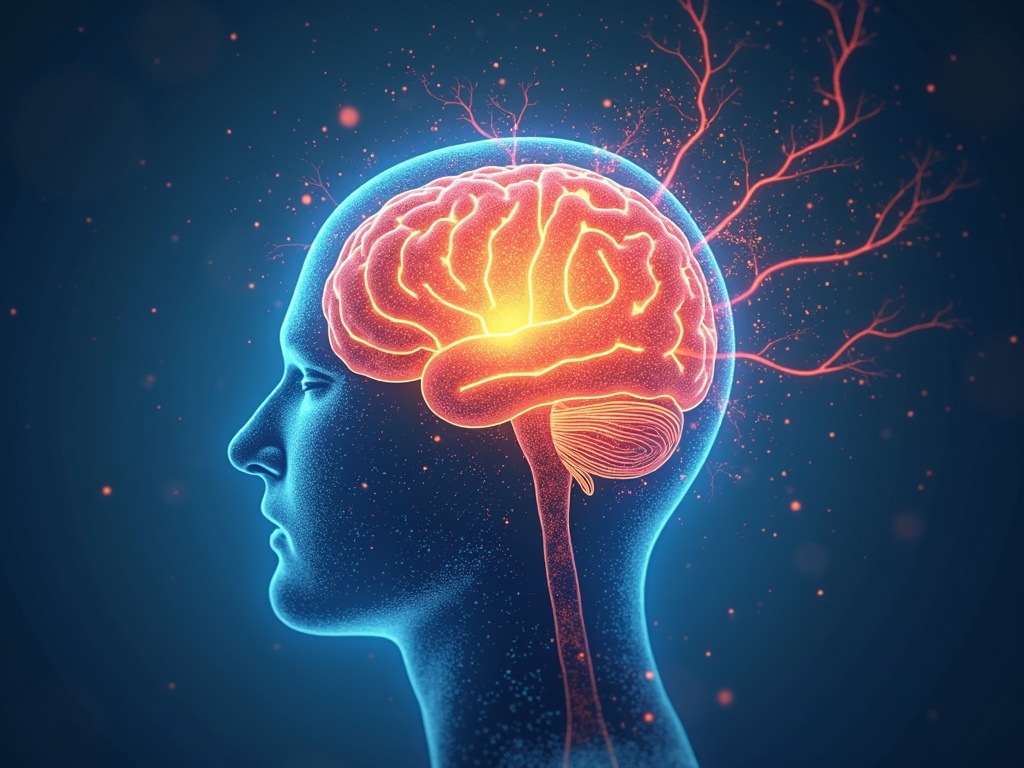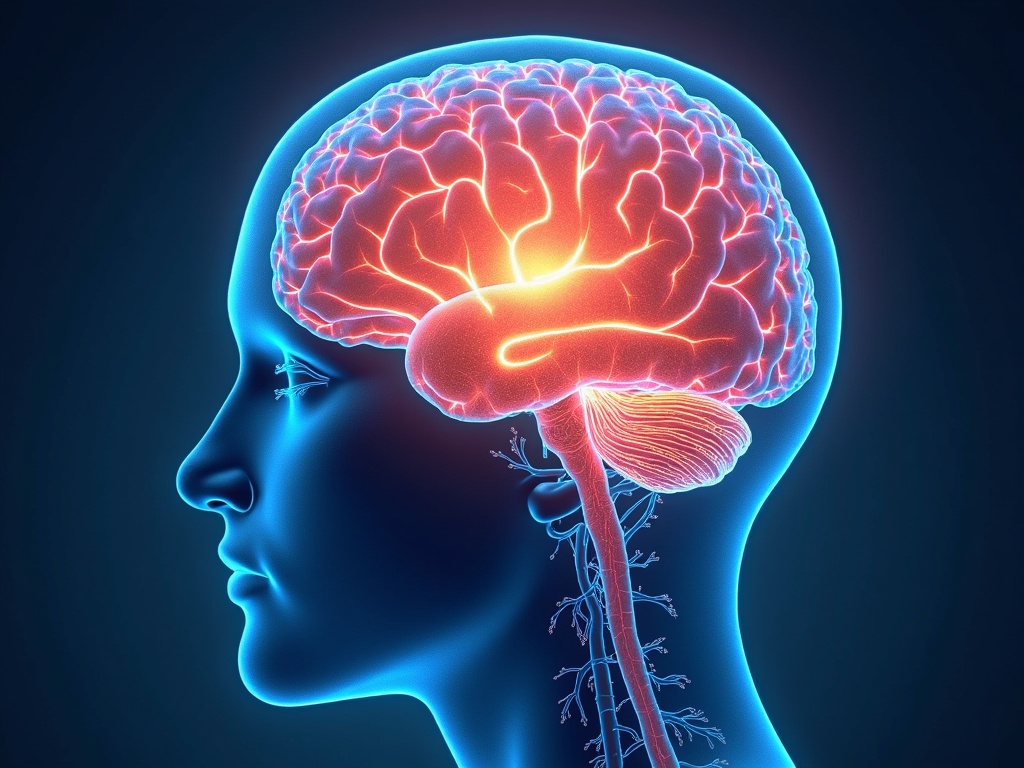How to Improve Cognitive Function After 50: A Comprehensive Guide
Is your memory feeling a little…fuzzy lately? Do you sometimes struggle to find the right word, or feel like your brain just isn't as sharp as it used to be? If you're over 50, you're not alone. Cognitive function, encompassing memory, attention, and processing speed, naturally changes as we age. But the good news is that you're not destined for a steady decline. There are numerous strategies you can implement to not only maintain but actually *improveyour cognitive function after 50, allowing you to stay mentally agile, engaged, and thriving for years to come. This guide explores those strategies in depth.
Understanding Cognitive Changes After 50
Before diving into solutions, it's important to understand what's happening in your brain as you age. Several factors contribute to cognitive changes:
- Reduced Blood Flow: As we age, blood vessels can become less flexible, potentially reducing blood flow to the brain. This can impact the delivery of essential nutrients and oxygen.
- Decreased Neurotransmitter Production: Neurotransmitters are chemical messengers that transmit signals between brain cells. The production of key neurotransmitters like dopamine and acetylcholine can decline with age.
- Accumulation of Plaques and Tangles: While often associated with Alzheimer's disease, the buildup of amyloid plaques and neurofibrillary tangles can begin subtly affecting cognitive function in some individuals as they age.
- Loss of Brain Volume: Studies show a natural, gradual decrease in brain volume with age, particularly in areas like the hippocampus (important for memory).
These changes don't automatically equate to significant cognitive impairment. However, they do highlight the importance of proactive steps to support brain health.
Lifestyle Strategies for Boosting Brainpower
The most effective approach to improving cognitive function after 50 involves a holistic approach, incorporating changes to your lifestyle.
Embrace Regular Physical Activity
Exercise isn't just good for your body; it's crucial for your brain. Physical activity increases blood flow to the brain, stimulating the growth of new neurons and strengthening connections between existing ones.
- Aerobic Exercise: Aim for at least 150 minutes of moderate-intensity aerobic exercise per week. This could include brisk walking, jogging, swimming, cycling, or dancing.
- Strength Training: Incorporate strength training exercises at least twice a week. Building muscle mass has been linked to improved cognitive function.
- Find Activities You Enjoy: The key to consistency is finding activities you genuinely like. If you dread going to the gym, explore other options like hiking, gardening, or playing a sport.
Nourish Your Brain with a Healthy Diet
What you eat directly impacts your brain health. A balanced diet rich in nutrients can protect your brain from damage and enhance cognitive function.
- Mediterranean Diet: This diet, rich in fruits, vegetables, whole grains, olive oil, and fish, has been consistently linked to improved cognitive health.
- Omega-3 Fatty Acids: Found in fatty fish like salmon, tuna, and mackerel, omega-3s are essential for brain function and may help protect against cognitive decline. Consider a supplement if you don't eat fish regularly.
- Antioxidants: Found in abundance in colorful fruits and vegetables, antioxidants protect brain cells from damage caused by free radicals.
- Limit Processed Foods, Sugar, and Saturated Fats: These can contribute to inflammation and negatively impact cognitive function.
- Stay Hydrated: Dehydration can impair cognitive performance. Aim to drink plenty of water throughout the day.
Prioritize Quality Sleep
Sleep is essential for brain health. During sleep, the brain consolidates memories, clears out toxins, and repairs itself.
- Aim for 7-9 Hours of Sleep Per Night: Most adults need this amount of sleep for optimal cognitive function.
- Establish a Regular Sleep Schedule: Going to bed and waking up around the same time each day helps regulate your body's natural sleep-wake cycle.
- Create a Relaxing Bedtime Routine: This could include taking a warm bath, reading a book, or listening to calming music.
- Optimize Your Sleep Environment: Make sure your bedroom is dark, quiet, and cool.
- Address Sleep Disorders: If you suspect you have a sleep disorder like sleep apnea, consult with your doctor.
Manage Stress Effectively
Chronic stress can negatively impact cognitive function by increasing cortisol levels, which can damage brain cells.
- Practice Relaxation Techniques: Meditation, deep breathing exercises, yoga, and spending time in nature can help reduce stress.
- Engage in Hobbies: Make time for activities you enjoy, whether it's painting, gardening, listening to music, or spending time with loved ones.
- Social Connection: Strong social connections can buffer against the negative effects of stress. Make time for friends and family.
- Seek Professional Help: If you're struggling to manage stress on your own, consider seeking help from a therapist or counselor.
Mental Exercises to Sharpen Your Mind
Just as physical exercise keeps your body strong, mental exercises keep your brain sharp. Engaging in mentally stimulating activities can help improve cognitive function and protect against cognitive decline.
Challenge Your Brain with New Activities
Learning new things forces your brain to create new neural pathways, which can improve cognitive flexibility and resilience.
- Learn a New Language: This is a challenging but rewarding way to boost cognitive function.
- Take Up a Musical Instrument: Learning to play an instrument engages multiple areas of the brain.
- Explore a New Hobby: Whether it's painting, coding, woodworking, or birdwatching, learning a new hobby can keep your brain active.
- Take a Class: Sign up for a class in a subject that interests you.
Engage in Brain-Training Games and Puzzles
Brain-training games and puzzles can help improve specific cognitive skills, such as memory, attention, and processing speed.
- Sudoku: This logic-based puzzle challenges your reasoning and problem-solving skills.
- Crossword Puzzles: These puzzles test your vocabulary and general knowledge.
- Memory Games: These games can help improve your short-term memory.
- Lumosity and Other Brain-Training Apps: These apps offer a variety of games designed to improve cognitive function.
Be mindful that the benefits of some brain training games are debated, with some studies suggesting limited transferability to real-world cognitive improvements. Look for games that challenge you in different ways and keep you engaged.
Read Regularly
Reading is a great way to stimulate your brain, expand your knowledge, and improve your vocabulary.
- Read a Variety of Genres: Don't limit yourself to one type of book. Explore different genres, from fiction to non-fiction.
- Join a Book Club: This is a great way to discuss books with others and expand your perspectives.
- Read Actively: Engage with the text by highlighting important passages, taking notes, and asking questions.
Maintain an Active Social Life
Social interaction is crucial for brain health. Connecting with others can reduce stress, combat loneliness, and provide mental stimulation.
Unlock the Secrets to Boosting Digestive Health for Enhanced Nutrient Absorption and Lasting Comfort
- Spend Time with Friends and Family: Make time for regular social gatherings.
- Volunteer in Your Community: This is a great way to give back and connect with others.
- Join a Club or Group: Find a group that shares your interests, whether it's a book club, a hiking club, or a gardening club.
- Stay Connected Online: Social media can be a valuable tool for staying connected with friends and family, especially if you live far apart.
Supplements and Medications: Considerations and Cautions
While lifestyle changes are the cornerstone of improving cognitive function, some supplements and medications may offer additional benefits. However, it's crucial to consult with your doctor before taking any new supplements or medications, as some can have side effects or interact with other medications you're taking.
Supplements
- Omega-3 Fatty Acids: As mentioned earlier, omega-3s are essential for brain function.
- Curcumin: This compound found in turmeric has antioxidant and anti-inflammatory properties and may help protect against cognitive decline.
- Ginkgo Biloba: Some studies suggest that ginkgo biloba may improve memory and cognitive function, but the evidence is mixed. Always check for interactions with other medications, particularly blood thinners.
- Creatine: Known for its muscle-building properties, creatine plays an important role in brain health too. Studies have found that dosages of 5g per day can improve cognitive performance.
- Vitamin B12: A deficiency in vitamin B12 can lead to cognitive problems.
- Phosphatidylserine: Shown to improve memory and mental sharpness, Phosphatidylserine is a naturally occurring substance in the brain that can be taken in a supplement form to improve cognition.
Medications
There are currently no medications that can definitively prevent cognitive decline. However, some medications may help manage symptoms of cognitive impairment. Always talk with your Doctor before taking any new medication.
The Power of Consistency and Patience
Improving cognitive function after 50 is a marathon, not a sprint. It takes time, effort, and consistency to see results. Don't get discouraged if you don't notice immediate changes. The key is to make these lifestyle changes a permanent part of your routine. Be patient with yourself, celebrate your progress, and remember that every small step you take is contributing to a healthier, sharper brain. By embracing these strategies, you can empower yourself to maintain and even improve your cognitive function, allowing you to live a more fulfilling and engaged life for years to come.


